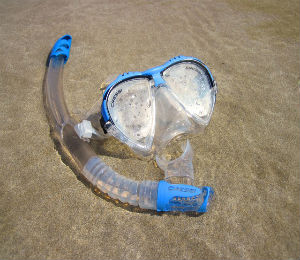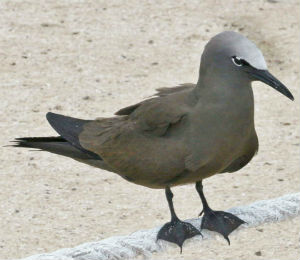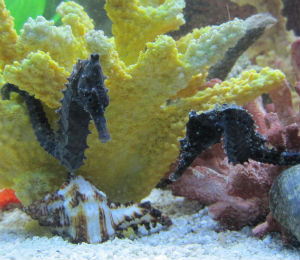Visitors to the Florida Keys may enjoy taking a Key West glass bottom boat tour or going on a snorkeling adventure. While snorkeling equipment can easily be rented, many divers prefer to bring or buy their own, either for sanitary reasons or simply for added comfort. Luckily, if maintained properly snorkeling gear can last for years with minimal effort.
Masks should be rinsed with fresh water after any dive, and periodically cleaned with a gentle soap such a dish detergent to more thoroughly remove buildup and residue, as well as to gently remove any sand that may have made its way into crevices. In fact, a thorough rinse or soak of all diving or scuba equipment is a necessity immediately after finishing a dive, as salt water can be corrosive and a delay in removing it can result in equipment aging more quickly or being damaged.
Dry and store equipment properly after cleaning, so no mold forms. Removing a mask's strap when it's not in use extends the life of the strap. While it is fine to air dry equipment, don't leave it out in direct sunlight for any extended period as that can dry out any rubber parts and make them brittle.
Sometimes even properly cleaned and stored equipment wears out, but even that doesn't mean throwing the equipment in the trash. Snorkel mouthpieces, which divers bite down on when swimming, can be easily replaced on most snorkel brands. So can snorkel keepers, the small piece that is used to connect the snorkel to the mask. These are simple procedures and can be done easily at home. Mask straps are also usually interchangeable, so a snapped or stretched out strap can be easily replaced.
Fins are another piece of equipment that see a lot of wear and tear. In addition to the freshwater rinse that all the rest of the equipment should get, periodically treating them with silicon spray made specifically for divers will help extend the life of a snorkeler's fins. So will removing the fins when not in the water rather and storing them carefully in a clean dry area, without other gear piled on top. They should be stored with foot inserts placed in the foot pockets, to help them keep the proper shape. Walking on dry land in fins can easily damage them, so it is to be avoided if at all possible.
These are all painless and easy maintenance steps, but they will add years to snorkeling equipment. Rather than wasting money replacing piece after piece, a small investment in replacement parts or cleaning supplies will keep equipment healthy and a diver safe. After all, damaged equipment is the last thing any diver wants to be thinking about when admiring a reef or school of tropical fish. With proper care, they won't have to.




